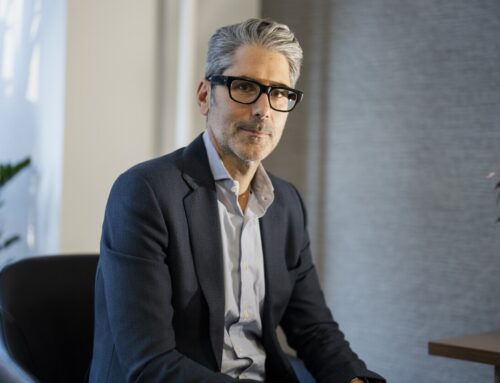The Cannabis Industry Tries To Police Itself In California
May 30, 2025
No one likes dirty weed. Or unclean air or polluted water. Most citizens are too busy to keep track of what’s clean and what’s not, so they depend on the government to do that work for them. They expect their hard-earned tax dollars will be used for basic services like clean water and air. When these basic services are not done properly, scandal erupts as whistleblowers or journalists uncover the truth. Contaminated drinking water in Flint, Michigan, is one example that captured the nation’s attention.
In my home state of California, a giant scandal erupted in June 2024 when the Los Angeles Times and Weed Week reported that many cannabis brands were contaminated with pesticides and heavy metals despite lab testing being a big part of the regulatory framework for legalization. In fact, a majority of legal brands and illicit products that the Times and Weed Week independently lab tested failed. Further examination of these press reports finds one scary pesticide after another was found in the legal supply chain. Consumer confidence may have taken a big hit as a result.
The reports also indicate that the Department of Cannabis Control (DCC), the regulating body of legal weed in the state, failed to do its job by properly regulating the labs that do the testing. As a result, the Times found that many labs falsify reports to give their clients a clean bill of health or higher potency results, or both.
This corruption should, in theory, be easy to detect by the DCC within their own lab-testing facility but no such facility currently exists or is operational as of this writing. It’s no secret that legal weed is heavily regulated and taxed in California but surprisingly, the commercial lab-testing facilities were largely left alone with no state lab to verify results and hold actors accountable.
Given the existential nature of the scandal on consumer confidence, the legal cannabis industry has taken action to step into this regulatory void with a nonprofit organization called the Environmental and Consumer Protection Organization (ECCO) launched in December 2024. The intent is to give consumers more confidence that cannabis products sold in the licensed market are clean.
ECCO has developed its own set of lab-testing standards for cannabis covering 138 harmful contaminants, far more than what the state DCC requires. Brands can sign up and pay a monthly fee to become members and enter into the lab-testing protocols that ECCO has developed. If a brand passes the tests, it can be certified by ECCO with a ECCO certification logo on products allowing consumers to quickly identify compliant products.
“We built ECCO because the industry was operating on broken trust,” said Ford Smith, ECCO founding member and CEO of Ultranative. “When lab results are manipulated, when contaminants are overlooked, it’s not just bad business — it’s a public health failure.”
Smith was mindful not to throw regulators under the bus when I spoke to him. “We’re not here to play gotcha,” he said. “We’re here to give consumers, patients, and responsible operators a way to rebuild confidence with real transparency and science-backed standards.”
When I emailed the DCC for comment, they pointed me to their own data and a report prepared by a third-party economic organization indicating growth in the legal market in 2024. The DCC didn’t address the LA Times reporting or the industry forming ECCO in response to that reporting.
“The Department of Cannabis Control’s data, and ERA’s California Cannabis Market Report, shows an increase in the licensed market through the end of 2024, which belies a lack of consumer trust,” said David Hafner, media relations manager for the DCC. “To this end, the Department is closely monitoring its licensees as evidenced by the 117 actions taken against licensees and 52 recalls issued in 2025. The Department has no opinion regarding ECCO’s claims, its business model, or its motivations.”
ECCO is currently working with two lab-testing facilities that have the necessary equipment to complete the rigorous testing panel they’ve developed. The labs were chosen for their track record of resisting “THC inflation” and for having transparent ownership willing to share data and undergo the ECCO protocols. This includes blind testing and third-party audits conducted by ECCO. Testing labs Infinite and Anresco are currently doing the testing for ECCO but the organization hopes to bring more labs on in the future.
ECCO recently released their first blind-testing audit that’s at the core of their attempt to hold the industry accountable. ECCO purchases two SKUs from random licensed cannabis dispensaries and sends them off to the labs. This is essentially what the LA Times did when they dropped their investigative reporting last June.
ECCO audits both member brands and non-member brands. The nine member brands all passed the first audit and several non-member brands failed. ECCO has not published the brands that failed yet but that may be due to sharing information and data with the DCC, which is the enforcement agency for any violations. ECCO has described the relationship with the DCC as “cautiously collaborative” while maintaining their complete independence from the DCC. The collective goal is to get dirty products off the shelf in California as quickly as possible.
Citizens may be comforted to see the cannabis industry in California doing the hard work of holding itself accountable especially after the LA Times story dropped. It took about a year for the industry to respond by forming ECCO, developing the lab-testing panel, and conducting the first audit. In my experience, getting this far in one year is laudable and ECCO has other initiatives to build trust with consumers.
In the near future, ECCO plans to create displays at retailers like Catalyst, one of the largest in the state, to further inform consumers. Elliot Lewis, CEO of Catalyst, has been a big champion of ECCO on social media.
There’s still a big challenge ahead to scale ECCO. It’s a big state with hundreds of brands and operators. ECCO will need more than the current dozen members to become viable. More large operators like Catalyst will need to embrace ECCO to give it more traction in the market and inform consumers that ECCO exists.
There are also other certification organizations like Clean Green and Sun and Earth, which mainly deal with farm certifications not manufacturers. Yet certificate fragmentation may be a concern when funding is limited (as it always is) and consumers may already be confused.
The future of ECCO will depend on the willingness of the industry to undergo more scrutiny, buy into the lab-testing protocols, be willing to be held accountable publicly, and tell the story to consumers with transparency and trust.
Whether or not the industry is both willing and able to scale ECCO may determine its fate with consumers. Media outlets like the LA Times and Weed Week will no doubt investigate the supply chain again.
As the old saying goes, the whole world is watching. If ECCO reaches its potential, then future investigations by the media should be more positive. At that point, the industry may be able to take a bow instead of hanging its head.
Search
RECENT PRESS RELEASES
Related Post


